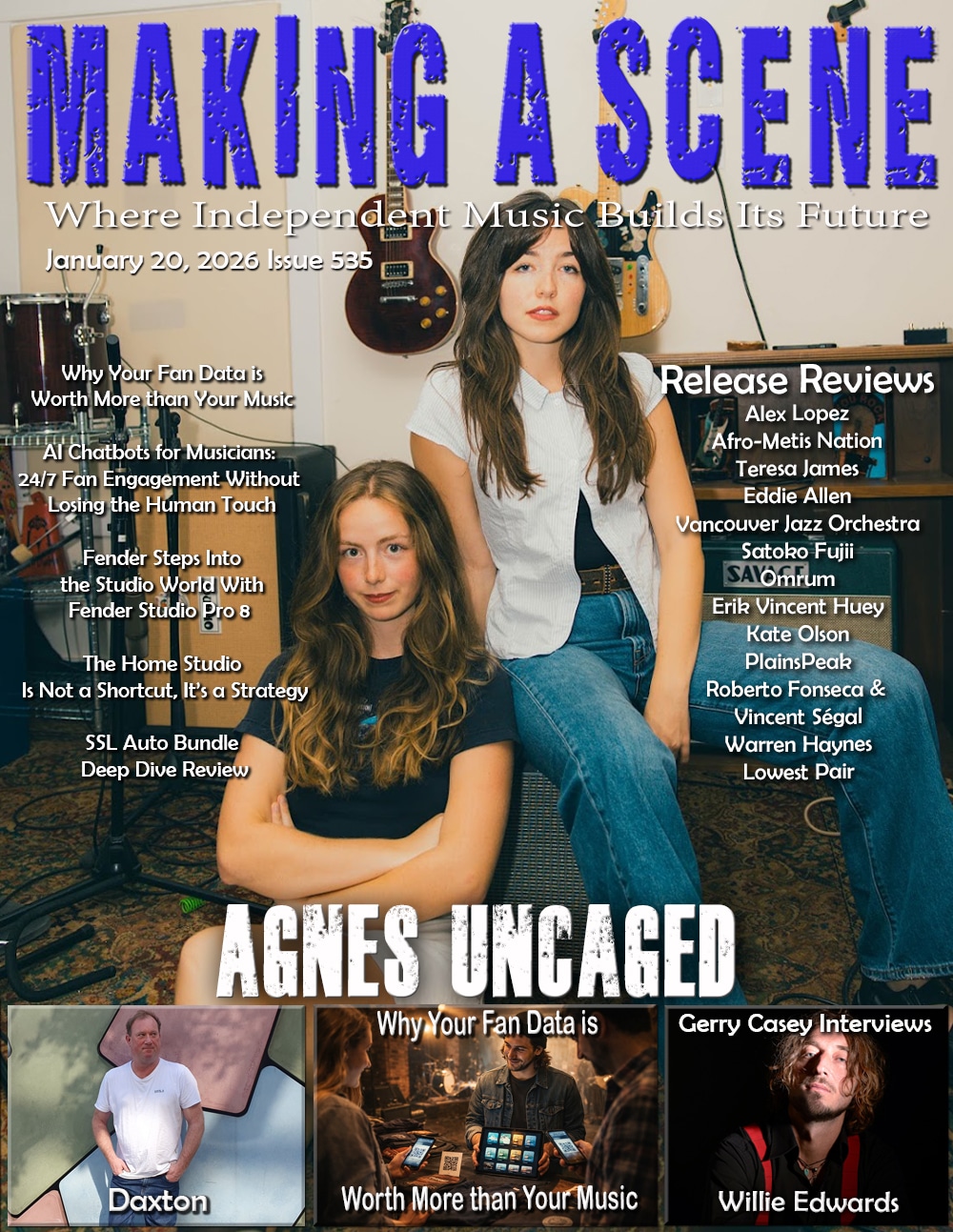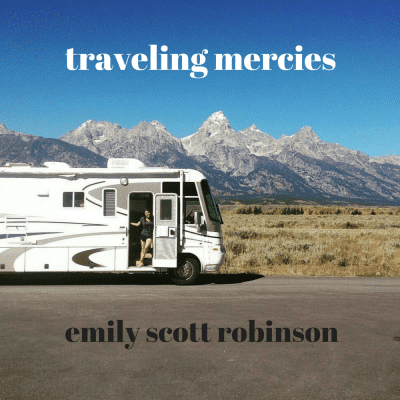Emily Scott Robinson Traveling Mercies
Emily Scott Robinson
Traveling Mercies
Self-released
If you’ve heard Emily Scott Robinson’s song “The Dress” or the accompanying stories in other publications, you may just want to scroll down. However, for those who have not, there’s not a more important place to start. Without her harrowing trauma endured after being raped in her early twenties, Robinson might not have become a full-time artist with her debut album, Traveling Mercies. Robinson travels the country with her husband in a RV. She was raped after being drugged at a bar when she was 22. Like so many survivors, she did not report the rape and fell into a period of depression, healing through a mix of therapies before becoming a social worker and crisis counselor, and eventually a full-time career in music about three years ago.
“The Dress” is a song she started working on a few years before her career change. It proved very difficult for her to write and even harder to muster the courage to perform it. Buoyed by a friend and fellow artist who received positive audience reactions for a song about her own abuse experiences, Robinson felt ready to try “The Dress” in a live audience setting. The song takes its title from the garment she was wearing when the incident happened, that she has since thrown away. Although worried about reaction, Robinson was pleasantly surprised by both young and old men and women who emotionally thanked her for sharing something that was like what had happened to them. Her questions in the lyrics are those that victims can relate to – “Was it the dress I wore? Was it the wine he poured? Was there some sign I ignored?”
So, now let’s describe the album, not all of which, but a good portion of, is autobiographical. “Better with Time” is her love story with her husband and hard-working traveling companion. She has a striking tribute to a World War II veteran in “Overalls.” She closes the album with the title track in the vein of the issue of our day, immigration, speaking openly about her concern for refugees seeking safe passage to this country. Robinson has a soprano voice that soars above the musical accompaniment which is supportive of the song, never intrusive. It makes the listener focus on her lyrics.
Her accompanists are among Nashville’s best. Producer Neilson Hubbard creates the right nuances and spaces. He was at the helm for Mary Gauthier’s Grammy nominated (and snubbed) Rifles and Rosary Beads. Hubbard recruited his go-to session players – versatile multi-instrumentalist Will Kimbrough, fiddler Eamon McLoughlin, Wild Ponies bassist Telisha Williams for “Pie Song,” and Sam Howard for bass on the others. Bobby Hecht and Grace Pettis add harmonies while Hubbard plays both drums and organ.
Although this is Robinson’s debut, she has won several noteworthy songwriting contests. Her song “The Dress” is so courageous that it may overwhelm much of the discussion of the entire album. (that happened here too). Nonetheless, welcome a new singer-songwriter with stories to tell, both serious and light-hearted. She tackles mistreatment of female Native Americans in “Shosone Rose” and domestic abuse in “Run” but lighter fare in tunes like the spare, vividly imagined “Borrowed Rooms and Old Wood Floors,” the guitar picking “White Hot Country Mess” and “Pie Song,” to name a few. As you’d expect, there are other travel songs too. Some are especially memorable like “Ghosts in Every Town.” Throughout, Robinson’s eye for detail and concise way of delivering narratives impresses.
- Jim Hynes
Discover more from Making A Scene!
Subscribe to get the latest posts sent to your email.








